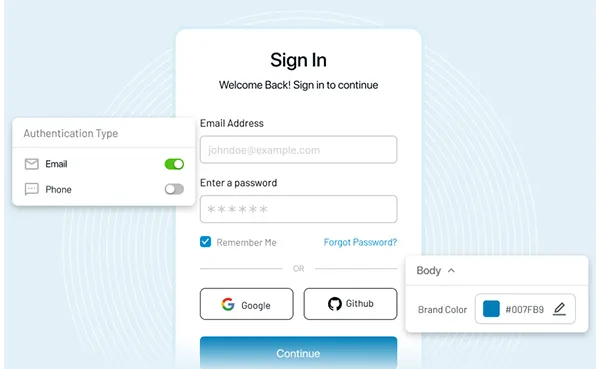Be honest, when did you last purchase a product without researching it on the internet?
Far in the past, isn’t it?
Admit it, the internet is the second home for most of us while we’re pacing towards a fully digitalized era and has impacted the way we make purchasing decisions.
Whether you’re planning to buy a new car or finding a local restaurant for a family dinner, your fingers move faster than your brain to check reviews and ratings.
While each of us is adhered to the internet to hunt for the best services and products, the final purchase results from lots of research on the internet coupled with countless positive reviews and 5-star ratings.
So, as a marketer, what we learned so far?
The online reputation of a brand is the key to business success regardless of the industry and niche in today’s digital epoch.
Let’s learn everything about online reputation management services and why it’s important, especially in times when no one wishes to squander money on grotty services/products.
What is Online Reputation Management (ORM)
ORM is a diverse concept intended to create a positive public perception regarding a business, brand, or individual.
Web reputation management entails a series of aspects, including addressing content, negative consumer feedback that tarnishes brand image, strategies to prevent and solve issues that can affect the overall market repute of a business, and monitoring of online reputation.
While a company’s overall market value is directly attributable to its reputation, ORM plays a crucial role in building brand reliability.
In a nutshell, ORM helps businesses monitor and maintain a positive reputation on the internet that increases business revenues.
How ORM Works
The way your business is represented on the web eventually decides whether you will have a huge client base or strive for the same.
ORM works by neutralizing the negative content with more positive content. For instance, if there is negative feedback against a product, the ORM agency would add more positive reviews to ensure overall brand reputation is maintained.
Most of the time, happy and satisfied clients are requested to leave a positive review on Google along with a 5-star rating. This impacts the overall rating of a brand.
Apart from this, ORM agencies emphasize leveraging both paid and earned media to distribute content that further enhances brand repute.
Why is ORM Important
Since you have a fair idea about ORM and how it’s being practiced, let’s have a look at some of the aspects that depict its importance for businesses in today’s era.
1. Digital word-of-mouth.
Most consumers who explore the internet before making a purchase treat reviews and ratings as personal recommendations, which further builds trust in a brand.
Moreover, most of the audience would quickly ignore five positive reviews but can immediately change the decision if they come across one negative review.
2. Valuable feedback to improve services.
Not every business takes bad reviews as a failure; many of them learn with the type of feedback their consumers provide to enhance their services and quality of products.
The valuable feedback can be quite helpful in building the next marketing strategy when you have worked on the lingering issues.
3. You can’t delete a negative review.
The best and the worst thing about reviews is that you can’t delete them, nor can your competitors.
You have to ensure that there are enough positive reviews that can balance the negative ones and the overall rating of your brand remains considerable.
How to Manage Your Online Reputation
Now, the big question that would be surely spinning in your mind is - how to manage my brand’s online reputation.
Since every industry is different, and so is the targeted audience, one needs to work on several areas to ensure they prepare the best ORM strategy.
Here’s the list of key elements that can help in maintaining a positive online market repute:
1. Begin with an audit.
It’s crucial to conduct an extensive audit of your business’s online reputation to know the areas that require considerable work.
The main motive is to know how people consider your brand in the online space. You must monitor your website, reviewing websites, and, most importantly, your social media channels since social media reputation matters a lot.
2. Establish a strategy.
The next crucial step is to establish a strong ORM strategy when you’re consistently monitoring the real-time view of your digital presence to deliver a timely reaction.
Consider deploying an in-house ORM team that precisely monitors the brand image over the internet.
It’s crucial to monitor the web for content along with negative mentions that may hamper your brand image.
Apart from this, you must ensure every issue is resolved by quickly replying or addressing the issue.
3. Encouraging positive reviews.
Most of the businesses aren’t aware of the fact that buyers do consider a lot of positive reviews even if there are some negative ones.
Encouraging your satisfied clients to narrate their experience with your brand is another impactful way to enhance your online brand reputation.
Moreover, it would be great if you could take consent from your clients and post their positive feedback or testimonials on your website or social media platforms that can do wonders for your brand image.
Final Thoughts
Online reputation is everything for a brand since it decides the overall growth percentage by showcasing brand reliability.
It doesn’t matter how much you focus on the overall quality of the product or the type of consumers you cater to; if your online presence isn’t appealing, you may end up losing market hold.
The aforementioned aspects provide the basic introduction to ORM and can be considered by businesses to begin enhancing their online brand reputation.
















